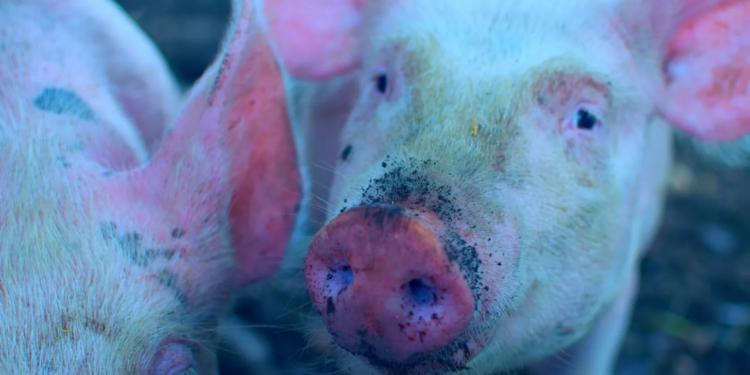In a surprising move, Republican state senators have reportedly refused to ban RNA vaccines in the food supply and instead opted to facilitate the use of this novel technology in their state. This decision has raised concerns among experts and consumers alike, as there appears to be a lack of food safety data regarding the use of RNA vaccines in animals meant for human consumption.
One of the key players in this controversial issue is Merck Animal Health, which received license approval for its Sequivity IAV-S NA (Swine Influenza Vaccine, N1, and N2, RNA Particle) pig vaccine from the U.S. Department of Agriculture (USDA) in 2022. Sequivity is the first commercially licensed RNA particle-based swine influenza vaccine and was made publicly available in November 2023.
The vaccine utilizes RNA Particle Technology, which involves electronically sequencing the gene of the specific pathogen of interest. When injected into pigs, the RNA provides instructions to the animal's immune cells to begin translating the sequence into proteins. These proteins act as antigens, triggering an immune response when the animal is exposed to the actual pathogen.
However, concerns have been raised about the safety of this vaccine. The USDA's summary of studies used in Merck's product licensure for Sequivity indicates that the vaccine kills one in 33 pigs. This high mortality rate has raised questions about the safety of consuming meat from animals vaccinated with RNA technology.
Unfortunately, there is a lack of long-term safety data regarding human consumption of such meat products. When questioned about any negative impact on humans who consume meat from RNA-vaccinated animals, Dr. Samantha Beaty, State Veterinarian and Assistant Commissioner for Animal Health, was unable to provide any proof confirming the absence of a demonstrated negative impact.
This lack of safety data is particularly concerning given the recent calls for moratoriums on the use of mRNA vaccines in humans. It is essential to ensure the safety of both animals and humans before introducing such vaccines into the food supply.
Several states, including Tennessee, Arizona, and Texas, have proposed legislation to address this issue. These bills aim to either ban RNA vaccines or require clear labeling of meat products from animals subjected to mRNA vaccination. However, sources suggest that Republican senators in Tennessee are unwilling to vote in favor of these laws, despite their supermajority in the Senate.
The refusal of Republican state senators to ban RNA vaccines in the food supply raises questions about their commitment to consumer safety. It also raises concerns about the financial incentives that may be influencing their decision, as banning RNA vaccines could potentially impact their donors.
In conclusion, the use of RNA vaccines in the food supply raises significant concerns about safety. With a lack of long-term data and the high mortality rate associated with Sequivity, it is essential to prioritize consumer safety and thoroughly assess the potential risks before allowing the widespread use of this technology.







